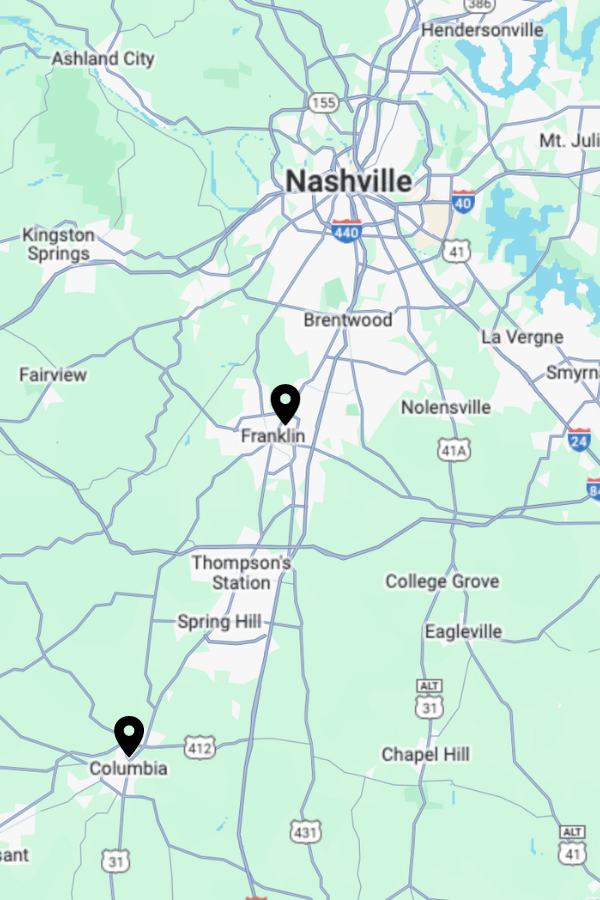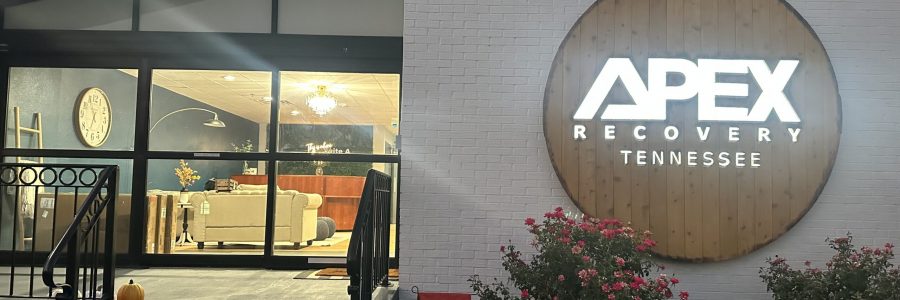Discovering the right aftercare program for drug and alcohol addiction is crucial for long-term recovery. Find information on local aftercare programs, their benefits, and how they support you post-rehabilitation. Explore options near you and learn about the resources available to help maintain sobriety and overall well-being.
Apex Drug and Alcohol Addiction Recovery Center specializes in rehab treatment for substance abuse and dual diagnosis, addressing concurrent mental health and addiction issues. Our approach combines medical, psychological, and holistic methods to ensure comprehensive care. Our custom-made programs foster recovery, resilience, and a return to wellness for those grappling with these complex challenges.

What is An Aftercare Program for Substance Abuse?
An aftercare program for substance abuse is a supportive and structured plan designed to help people navigate the journey of recovery after completing a primary treatment program. These programs help prevent relapse, offer ongoing support, and assist people in integrating into their daily lives with new coping mechanisms and healthier habits.
Aftercare can vary widely in format, including outpatient drug addiction counseling, support group meetings, educational workshops, and sober living environments. The core purpose is to provide a safety net that addresses the psychological, social, and sometimes physical aspects of substance abuse recovery. By fostering a supportive community and offering aftercare resources for managing stress and triggers, aftercare planning programs play a critical role in helping people maintain their sobriety and work towards a fulfilling life free from substance dependence.
How can an Aftercare Program Help with Addiction Recovery?
An aftercare program can significantly strengthen addiction recovery by offering continued support and resources once initial treatment concludes. These programs reinforce coping strategies, provide a community of support, and help you navigate the challenges of sobriety in everyday life, reducing the risk of relapse and promoting long-term recovery.
Extended support through aftercare includes regular check-ins, alcohol addiction therapy sessions, group meetings, and sometimes access to medical advice, tailored to help people adjust to life without dependency. This ongoing engagement keeps recovery goals front and center, offering a structured environment where people can share their experiences, successes, and setbacks. With an emphasis on the development of healthy habits, stress management techniques, and social connections, aftercare rehabilitation programs ensure that recovery is a continuous process.
Why Is Aftercare an Important Part of a Recovery Plan?
Aftercare is an essential part of a recovery plan because it provides sustained support and resources crucial for navigating the complexities of life post-treatment. It bridges the gap between intensive treatment and independent living, reducing the risk of relapse by offering continuous guidance, accountability, and a supportive community focused on long-term sobriety.
This phase of recovery is when people apply the skills learned in treatment to real-world scenarios, which can be challenging. Aftercare offers a safety net through this transition, with access to therapists, support groups, and educational workshops that reinforce coping strategies and healthy lifestyle choices. Additionally, it promotes a sense of belonging and connection with others who share similar experiences, making it easier to overcome obstacles.
Free Addiction Assessment
Schedule a free, confidential assessment with a licensed clinician. Apex Recovery can check your insurance coverage levels for drug and alcohol addiction, and mental health treatment.
- Please complete and send the form below.
- One of our staff members will contact your insurer to check your coverage.
- We will contact you promptly with the results and to discuss the next steps.
Insurance Verification
"*" indicates required fields

How Much Do Addiction Aftercare Treatment Programs Cost?
The cost of addiction aftercare treatment programs can vary widely depending on the type of services provided, the frequency of sessions, and the program’s duration. Some aftercare services may be free, such as community support groups, while others, like ongoing counseling or sober living arrangements, can incur costs ranging from minimal fees to several thousand dollars per month.
Insurance coverage can significantly affect out-of-pocket expenses for aftercare. Many insurance plans cover some aspects of addiction recovery, including aftercare services, though the extent of coverage can vary. It’s important for people to verify their insurance benefits and understand which services are covered. Additionally, some aftercare programs offer sliding scale fees or payment plans. Here at Apex Addiction Recovery Center, we work with people coming from many different financial situations to get them the quality aftercare they need. Contact us or call us at (877) 881-2689 today.
Do Health Insurance Plans Cover Aftercare Treatment Programs?
Many health insurance plans provide coverage for aftercare treatment programs as part of their behavioral health services. Coverage can vary depending on the specific insurance plan, but services such as outpatient counseling, support group participation, and medication management are often included. However, it’s essential for people to review their insurance policy for limitations and costs.
Insurance plans typically cover aftercare treatment programs that are deemed medically necessary for the person’s recovery from addiction. This may include services provided by licensed therapists, psychologists, or addiction counselors, as well as participation in structured support groups like Alcoholics Anonymous (AA) or Narcotics Anonymous (NA). Some plans may require pre-authorization or have limitations on the number of sessions covered, so it’s crucial for you to familiarize themselves with your plan’s specific requirements.
Additionally, people may need to meet certain criteria to qualify for insurance coverage for aftercare treatment programs. This could include a diagnosis of substance use disorder, a recommendation from a primary care physician or addiction specialist, or documentation of participation in a formal treatment program.
Which Health Insurance Providers Cover Aftercare Programs?
Several health insurance providers offer coverage for aftercare programs, including Aetna, Blue Cross Blue Shield, Cigna, HealthSmart, Magellan, MultiPlan, TriWest, and United Healthcare. These providers typically include behavioral health services in their coverage, which often includes aftercare treatment programs for substance abuse and addiction.
Apex Alcohol and Drug Addiction Recovery Center is a treatment facility that is in-network with and accepts insurance from the above providers. This means that people seeking aftercare treatment at Apex can utilize their insurance benefits to help cover the costs of services. It’s important for you to verify your specific insurance with Apex Substance Addiction Recovery Center to ensure it is accepted. You can check your insurance here or visit our Insurance page to learn more.
How to Find Drug and Alcohol Addiction Aftercare Programs Near Me
To find drug and alcohol addiction aftercare programs near you, start by researching treatment centers nearby. Consider reputable facilities in Tennessee, such as Apex Drug and Alcohol Addiction Recovery Center, which offers comprehensive aftercare support. For personalized assistance and guidance, don’t hesitate to call Apex at (877) 881-2689. Take the next step towards lasting recovery.
Free Addiction Assessment
Schedule a free, confidential assessment with a licensed clinician. Apex Recovery can check your insurance coverage levels for drug and alcohol addiction, and mental health treatment.

Treatment Centers in Tennessee
Apex Addiction Recovery Center in Tennessee operates two state-of-the-art facilities. APEX Recovery Franklin is located at 4601 Carothers Pkwy STE 250A, Franklin, TN 37067. Additionally, APEX Recovery Columbia is situated at 2710 Trotwood Ave Suite A, Columbia, TN 38401. These locations provide comprehensive addiction treatment services, offering people in Tennessee accessible and effective aftercare support.
Apex Recovery Franklin
4601 Carothers Pkwy STE 250A
Franklin, TN 37067
Apex Recovery Columbia
2710 Trotwood Ave STE A & B
Columbia, TN 38401

Aftercare Program for Addiction
Aftercare is a life-long commitment if you want to enjoy a successful recovery. You need to be able to manage triggers, stressors, and other life hurdles effectively so that you do not relapse. Aftercare can take many forms, from short-term and long-term group meetings, to support check-ins when needed. If you want to set yourself up for success, you need to recognize that recovery is for life, and you should arm yourself with all the tools and resources available to you.
Understanding that the risk of relapse is always there is also important. Knowing that a level of support will always be there when you need it can make the prospect of going it on your own after treatment less daunting. Aftercare programs are sometimes an extension of an outpatient program, or they can be a stand-alone group therapy.
At Apex Recovery, we offer a holistic treatment experience that treats the entire person—mind, body, and soul. Each client works with our treatment professionals to craft an individual treatment plan that incorporates a combination of traditional and experiential therapies. These customized treatment plans are further enhanced by programs like aftercare.
We encourage all clients to take advantage of the campus surroundings and engage in music therapy, acupuncture therapy, and more. The continuum of care at Apex Recovery can start with inpatient treatment, transition to outpatient treatment, and then move on to sober living, aftercare, and alumni programs. You can have peace of mind knowing that a team of medical, clinical, and therapeutic professionals are on hand to assist in every part of the treatment and recovery process.

How Do Aftercare Programs Fit in with Drug and Alcohol Recovery Plans?
Aftercare programs are a vital component of drug and alcohol recovery plans, a bridge between the structured environment of rehabilitation and the challenges of everyday life. They are designed to support the journey toward long-term sobriety by reinforcing the skills and strategies learned during initial treatment. Here’s how aftercare programs fit into the broader recovery plan:
- Continued Therapy: Continued therapy sessions, whether individual or group, provide a safe space for people to process their experiences, work through challenges, and continue the emotional and psychological healing process. Therapy helps in addressing underlying issues that contribute to substance use, preventing relapse by equipping you with coping mechanisms to deal with stress and triggers.
- Aftercare Programs: These programs offer a structured approach to recovery, tailoring services to meet the evolving needs of the individual. This might include outpatient services, sober living homes, or regular check-ins with a counselor. They help maintain the momentum of recovery, ensuring that people remain committed to sobriety.
- Support Group Participation: Engagement in support groups like Alcoholics Anonymous (AA) or Narcotics Anonymous (NA) offers peer support, shared experiences, and accountability. These groups provide a community of people who understand the challenges of recovery and can offer encouragement and advice, reinforcing the person’s commitment to sobriety.
- Lifestyle Changes: Aftercare encourages and supports significant lifestyle changes that promote a healthy, substance-free life. This can include adopting a healthy diet, regular exercise, mindfulness practices, and engaging in new hobbies or interests. These changes help to improve overall well-being and reduce the desire to turn to substances as a coping mechanism.
- Continued Monitoring: Many aftercare programs include some form of continued monitoring, such as drug testing, to hold people accountable and encourage them to stay on track. This monitoring helps to identify potential relapses early and intervene before they escalate.
- Integration into Daily Life: Aftercare programs focus on the integration of recovery strategies into daily life, helping people apply the skills learned in treatment to real-world situations. This includes managing responsibilities at work or school, repairing and building relationships, and navigating social situations without substance use.

What is the Addiction Aftercare Process and Schedule?
The addiction aftercare process involves a variety of critical components designed to support ongoing recovery and sobriety, including:
- Development of a Personalized Continuing Care Plan: This initial step involves collaborating with the client to outline a tailored care plan, setting clear goals and detailing the specific interventions and services to be provided.
- Counseling and Therapy Sessions: Key to aftercare, these sessions include both individual and group counseling and therapy formats to address personal issues and foster a supportive community environment.
- Educational Workshops and Skill Development: Participants are offered workshops on crucial topics like stress management, coping strategies, relapse prevention, and the benefits of nutrition and exercise, equipping them with vital skills for sobriety.
- Support Group Engagement: Clients are encouraged to join groups such as Alcoholics Anonymous (AA) or Narcotics Anonymous (NA), providing a platform for peer support and shared recovery experiences.
- Medication-Assisted Treatment (MAT): For some, aftercare includes the use of medications like methadone, buprenorphine, or naltrexone to manage withdrawal symptoms or reduce cravings, under medical supervision.
- Family Support and Therapy Sessions: An integral part of aftercare, these sessions involve educating and supporting family members, helping them understand addiction and how to best support their loved one’s recovery.
- Comprehensive Aftercare and Continuing Care Planning: As the aftercare program concludes, staff work with clients to develop an ongoing support plan, identifying available resources and services to aid in maintaining recovery and promoting a healthy lifestyle.
By engaging in these structured aftercare activities, people in recovery are better equipped to navigate the challenges of sobriety, ensuring a stronger foundation for a lasting, healthy life free from addiction. Call Apex Addiction Recovery Center with any questions at (877) 881-2689.
How to Find Drug and Alcohol Aftercare Options
To locate aftercare treatment centers in the vicinity, consider taking the following approaches:
- Online Research: Initiate your search on the internet, targeting services for drug addiction therapy and counseling. Incorporate your specific location in your queries, such as “addiction counseling near me” , “addiction therapy near me,” or “substance abuse therapy in [your location].”
- Treatment Directories: Search trusted online directories or databases that catalog addiction treatment facilities. These platforms often enable searches for particular therapy types or counseling, allowing for location-based filtering.
- Healthcare Provider Consultations: Engage with local healthcare practitioners, therapists, or mental health support clinics to inquire about available addiction therapy and counseling services. They can offer direct services or recommend close by, reliable providers.
- Referrals: Leverage recommendations from reliable sources, including your general practitioner, mental health experts, or support networks. They might have insights into esteemed therapy and counseling services within a short distance.
- Insurance Provider: Reach out to your health insurance carrier to discuss your coverage regarding addiction therapy and counseling. They can give you a list of networked providers and assist with accessing eligible services.
- Support Group Engagements: Participate in local support group gatherings, like Alcoholics Anonymous (AA) or Narcotics Anonymous (NA), and get advice from attendees about nearby therapeutic and counseling alternatives in the neighborhood.
- Helpline and Hotline Assistance: Reach out to dedicated addiction helplines or hotlines that offer information and support for substance misuse. These resources can provide therapy and counseling service recommendations tailored to your region.
- Local Mental Health Organization Outreach: Connect with community mental health bodies or the nearest centers specializing in addiction recovery. They might offer detailed information on therapy and counseling services or link you to regional resources that are conveniently located.
Using these strategies, you’ll enhance your chances of discovering high-quality treatment centers near you, paving the way for a successful recovery journey.

Stats on Drug and Alcohol Aftercare Programs
- Aftercare was provided by 87% of all treatment facilities
- Discharge planning was provided by 96% of facilities
- Naloxone and overdose education were provided by 60% of facilities
- Mentoring/peer support was provided by 63% of facilities
- Self-help groups were provided by 49% of facilities
- 51.7% of people aged 12 or older drank alcohol in the past month
- Over 6% reported heavy drinking in past month
- Alcoholics Anonymous has over 115,000 groups worldwide
- About 40% of AA participants drop out in the first year
- 67% of those who were in AA were abstinent 16 years later
- 56% of those who saw a therapist were abstinent on the follow up
